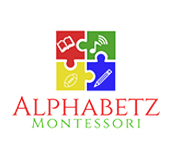Nourishing Young Minds: How the Montessori Method Promotes Healthy Eating Habits in Children
In a world where fast food and processed snacks are often the go-to options for busy families, instilling healthy eating habits in children from a young age has never been more critical. The Montessori education system, known for its unique approach to fostering independence and self-directed learning, offers a compelling framework for integrating nutrition education into the lives of young learners. This blog explores how the Montessori method can be harnessed by parents and educators…


